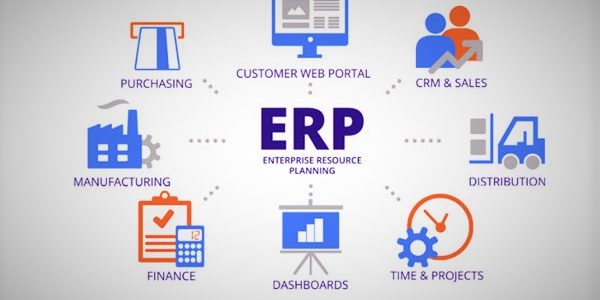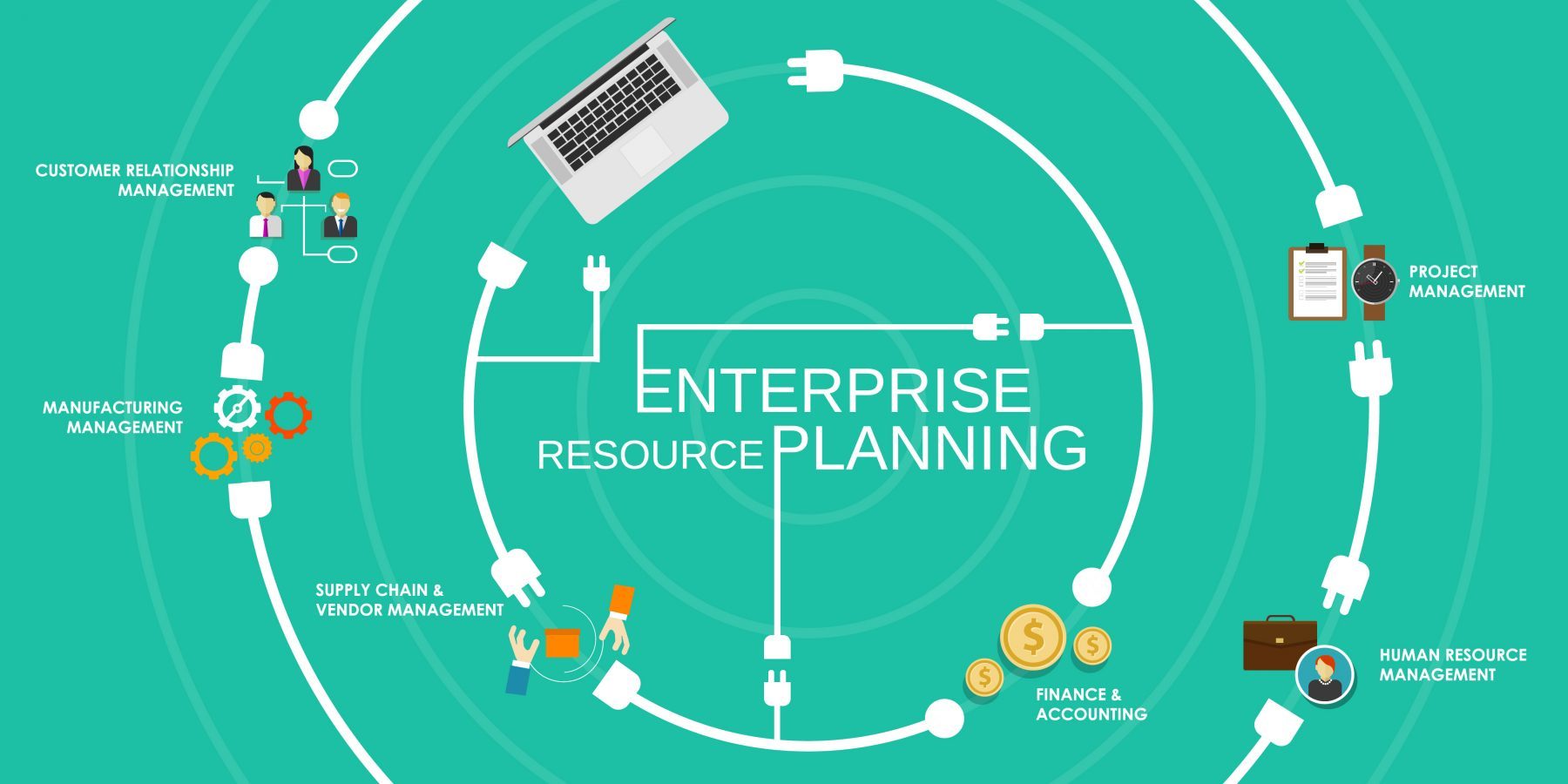WHAT IS ERP(Enterprise Resource Planning)

Category: Total VDO Date Published: August 23,2022
(Enterprise resource planning)
ERP

Enterprise resource planning (ERP) refers to a type of software that organizations use to manage day-to-day business activities such as accounting, procurement, project management, risk management and compliance, and supply chain operations. A complete ERP suite also includes enterprise performance management, and software that helps plan, budget, predict, and report on an organization’s financial results.
ERP systems tie together a multitude of business processes and enable the flow of data between them. By collecting an organization’s shared transactional data from multiple sources, ERP systems eliminate data duplication and provide data integrity with a single source of truth.
What is an ERP
system?
How can these solutions manage organizations’
day-to-day business activities, such as accounting, finance, procurement, project
management, supply chain, and manufacturing?
Enterprise resource planning systems are complete,
integrated platforms, either on-premises or in the cloud, managing all aspects
of a production-based or distribution business. Furthermore, ERP systems support
all aspects of financial management, human resources, supply chain management,
and manufacturing with your core accounting function.
ERP systems will also provide transparency into
your complete business process by tracking all aspects of production,
logistics, and financials. These integrated systems act as a business’s central
hub for end-to-end workflow and data, allowing a variety of departments to
access.
What’s the difference between ERP and financials?
Although the term
“financials” is often used when describing ERP software, financials and ERP are
not the same things. Financials refers to a subset of modules within ERP.
Financials are the
business functions relating to the finance department of an organization and
include modules for financial accounting, sub-ledger accounting, accounting
hub, payables and receivables, revenue management, billing, grants, expense
management, and project management, asset management, joint venture accounting, and
collections.
Financials software uses
reporting and analytical capabilities to comply with the reporting requirements
of governing bodies, such as the International Financial Reporting Standards
Foundation (IFRS), Financial Accounting Standards Board (FASB) for Generally
Accepted Accounting Principles in the United States (GAAP), as well as for
other countries (HGB in Germany and PCG in France, for example).
ERP fundamentals
ERP systems are designed around a single, defined data structure
(schema) that typically has a common database. This helps ensure that the
information used across the enterprise is normalized and based on common
definitions and user experiences. These core constructs are then interconnected
with business processes driven by workflows across business departments (e.g.
finance, human resources, engineering, marketing, and operations), connecting
systems and the people who use them. Simply put, ERP is the vehicle for
integrating people, processes, and technologies across a modern enterprise.
For example: consider a company that builds cars by procuring parts and
components from multiple suppliers. It could use an ERP system to track the
requisition and purchase of these goods and ensure that each component across
the entire procure-to-pay process uses uniform and clean data connected to
enterprise workflows, business processes, reporting, and analytics.
Recent News:
- Step By Step Instructions To Troubleshoot Streaming Media Issues In Roku
- Spilling The Beans On The Android Tv’s Secret Features
- What Is Amazon Fire Tv?
- What Is Apple TV?
- A Quick Recap To The Last Big Session For Android TV
- A Quick Look Into The Issues & The Solutions Of Amazon Fire TV
- Why Having Custom App On Roku Is A Must For Your Business
- How To Tackle The Most Common Errors Of Apple TV?
- Latest Industry Trends In Live Streaming After The Pandemic
- Best Practices For Improving The User Experience On OTT Platforms
- Strategy Of Your OTT Platform For 2022 And Beyond
- REASONS WHY A COMPANY OR A ONLINE BUSINESS NEEDS SEO?
- IMPORTANCE OF MOBILE APP FOR A BUSINESS.
- NEW DEVELOPMENTS IN OTT PLATFORMS FOR 2022
- Increasing Craze Of Ott Platforms In India





















